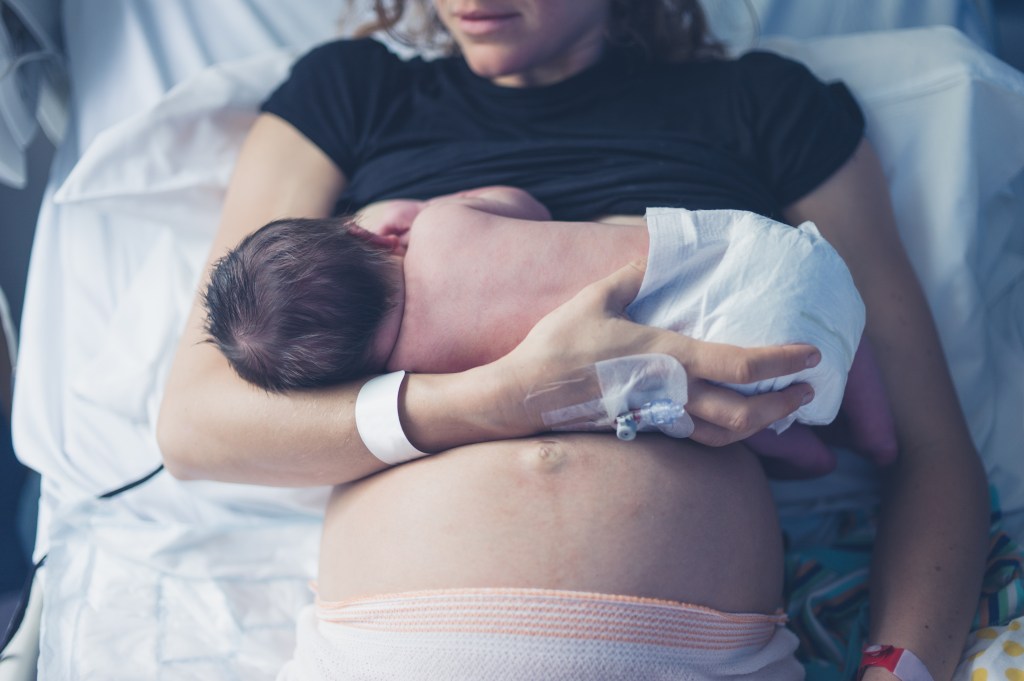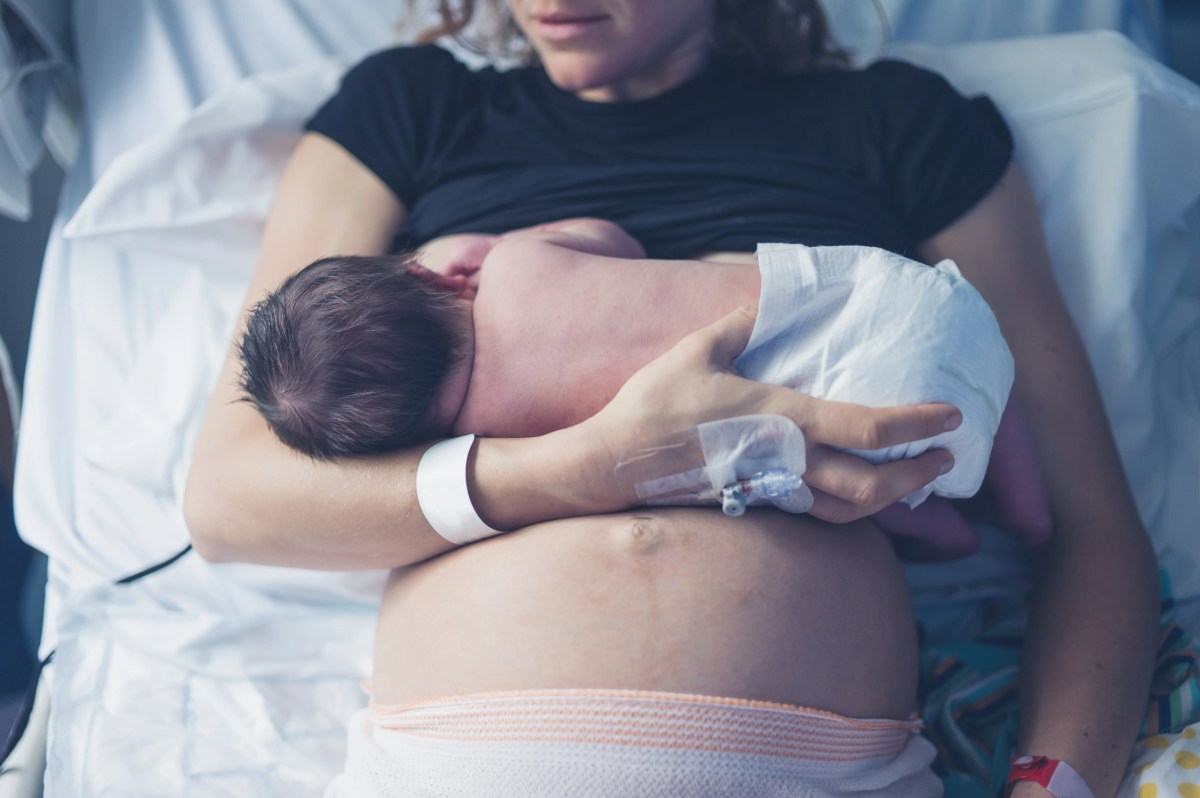Your cart is currently empty!
How Baby’s Nutrition Mirrors the Mother’s

How do we nourish ourselves and our babies? How and what to eat is a topic that stays on every mother’s mind from pregnancy through the 4th trimester, and into their baby’s start on solids. But where nutritional advice is readily available during pregnancy, little information exists on how a mother can nourish herself during…
A mother’s postpartum nutrition matters. Learn more about your 4th trimester food needs.
Here’s What You Need To Know:
- Postpartum nutrition focuses on replenishing, healing, and restoring balance to a body.
- Iron and zinc-rich meals encourage strength and energy—simultaneously healing the mother’s body while providing energy to care for a new baby.
- Studies indicate that ensuring ample nutrients in a postpartum mother’s diet can help combat mood dysregulation and support postpartum mental health and help with postpartum depression and anxiety.
Why Postpartum Nutrition Matters for the Mother
When pregnant, nutrition information is readily available. Doctors and midwives, apps, and books all echo the importance of eating a balanced diet to support a growing baby and mother. But after delivery, little information is offered on how to nourish a mother during her Fourth Trimester. Luckily, what feeds the mother also nourishes the baby; nutrition after birth, for mother and baby, comes full circle.
Postpartum nutrition is rooted in replenishing, healing, and restoring balance to a body that has gone through tremendous work. Many cultures worldwide share a commonality to do just that. New mothers are fed warm, soft, and enriching foods that help restore blood loss and are gentle on the body’s digestion. Broths and stews are staples in many cultures for postpartum mothers. In African-American traditions, collard greens are prepared for a new mother. Nigerians cook up traditional hearty rice and meat stew or pepper soup a. Asian cultures hero soups, organ meats, and herbal teas reign as postpartum go-to’s. In Latin America, overly spiced or difficult-to-digest meals are avoided during la cuarentena.
As the body begins its postpartum adjustment, fatty, iron, and zinc-rich meals encourage strength and energy. These simultaneously heal the body while providing energy needed to care for a new baby.




Important Nutrients During the 4th Trimester
There is a broad interpretation of how long the postpartum period lasts. However, necessitating proper nutrition for the first year after giving birth is important.
Hormones fluctuate and the new mother’s body is in a constant flux, searching for familiarity and comfortability. Diet is a pivotal factor in helping the transition from pregnancy to motherhood. Postpartum nutrition is also more than just physically valuable. Studies indicate that ensuring ample nutrients in a postpartum mother’s diet—like vitamin D, omega-3s, B vitamins, and probiotics—can help combat mood dysregulation and support postpartum mental health by benefiting the “gut-brain axis”(1). For lactating mothers, eating well is equally beneficial for their babies, who need vital post-birth nutrition as well. Babies need choline, healthy fats, and calcium to support their growth and development.
Nutritional Building Blocks for Babies
It’s well established that a baby’s primary source of nutrition should be from breastmilk or formula for their first year of life. These foods provide the essential nutritional building blocks for infants. Then around six months of age (and when signs of readiness are met) most caregivers introduce their baby to solids. Introducing baby to solid foods is advantageous for their long-term health, sensory exploration, and oral motor development(2).
But What Should Babies Eat?
Baby’s needs often surpass those of the mother’s. Too often new moms find themselves satisfying their hunger with just about anything convenient. When it comes to how to feed babies, much more thought and consideration is given. It is a common question new parents constantly Google or seek guidance on. The answer lies in what is good for the mother is also good for the baby.
Like a mirror, postpartum nutrition and infant nutrition have a multitude of similarities. Iron-rich, easily digestible, soft and nurturing foods are not only beneficial after birth, but are at the core of an infant’s dietary needs. Babies, whose guts begin to mature around six months of age, and whose iron stores begin to dwindle around the same time, benefit from a comparable food framework that postpartum mothers do (3). With rapidly growing brains and bodies, babies need to stock up on important nutrients like vitamin D, healthy fats, iron, and zinc (sound familiar?). The same way that these nutrients tend to the ever-changing body of a new mother, they help with the day-to-day development of infants.
How a Doula Can Help
As a full-spectrum doula, I know the importance of nourishing mothers. I often opt for a holistic and comprehensive approach to doing so. As I’ve entered into the world of motherhood myself, I know firsthand how much research and information exists. Most, I excitedly absorb, working to establish a strong foundation for my baby’s nutrition and palette. I’m consistently helping other mothers navigate these journeys too, helping to gently lessen the stress and complication of them.
In doing so, I’ve discovered how introducing my baby to foods has become an opportune time to also reconnect to myself and my body’s needs, bearing witness to nature’s gentle reminder of the synergy that exists between us and our children, from the womb and beyond. This realization has deeply nourished my son and I. We get to discover new tastes and the physical benefit of nourishing our bodies in accordance to our needs. These foundations also build our bond as mother and child.
Summary
Though seemingly simple, postpartum nutritional requirements can overwhelm even the most prepared new mother. Caring for a baby is the highest priority, and as many new parents will attest, self-care and eating healthy foods for each and every meal can become a daunting task. This is especially so for those without a village and support system around them, like family and friends or a postpartum doula, to help bring meals, cook, and clean while the baby and mother can rest and bond.
Though seemingly simple, postpartum nutritional requirements can overwhelm even the most prepared new mother. Caring for a baby is the highest priority, and as many new parents will attest, self-care and eating healthy foods for each and every meal can become a daunting task. This is especially so for those without a village and support system around them, like family and friends or a postpartum doula, to help bring meals, cook, and clean while the baby and mother can rest and bond.










